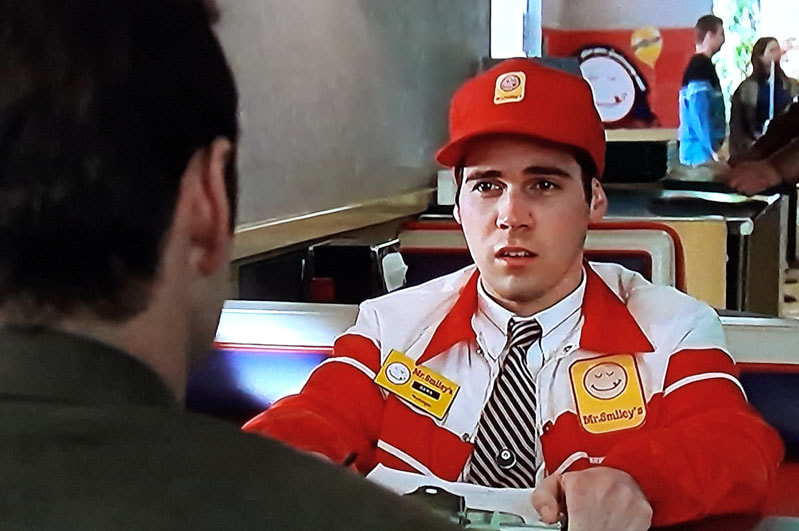In the movie American Beauty, the main character—Lester Burnham—quits his lucrative-ish but antagonizing inside-sales position, and sets out to apply for the entry-level job of all entry-level jobs: flipping burgers. Of course the burger-joint manager is baffled, and tells Lester he doesn't see this as a good fit. Unfazed, Lester points out how the manager’s judgment is misguided.
Granted, this scenario is hyperbole, like so much in American Beauty. Even so, the reality is: people do pursue jobs they are overqualified for, all the time.
How about you? Have you laid eyes on a job opening but not applied in the end because you thought you would be passed over for being overqualified? Are you at that kind of crossroads right now? Or have you perhaps already gone through the frustration of being rejected specifically for being overqualified?
First, put yourself in the hiring manager’s shoes.
The concerns on an employer’s part are understandable, whether they are based on common sense or on preconceived notions. That, too, is the reality of the situation. At the same time, there are various ways to neutralize the “overqualified” label, or even turn it around to work in your favor.
Your résumé may be the place to start.
Talk about an ounce of prevention being worth a pound of cure! Of course you are proud of your accomplishments, but it may be better to hold back so you look like a good fit. Much as this may feel like severing your own limbs, it might be a good idea to leave some things off your résumé.
A Certified Professional Résumé Writer will work with you on what to emphasize, what to deemphasize, and how to shuffle your assets. You will still be “found out” eventually, but a strategically designed résumé is more likely to get you an interview, and when that happens, it will be much easier to address the “overqualified” concern.
“Hm hm, I am overqualified…and that is a problem because…?”
Take the bull by the horns. Of course you are overqualified. Why is that a bad thing, though? Let the interviewer point out specific concerns; get them to put their finger on something beyond the vague negative connotation of “overqualified.” The interviewer will probably come up with one or more of the following.
—You will certainly get bored, and not last long.
“Oh, I see what you mean. Let me put your mind at ease: I understand there are a lot of new things to learn for me here. As long as I can keep learning something new, I won’t get bored.”
—It could be a problem that you know more than your supervisor does.
“How so? I imagine my supervisor would rather have a resourceful new hire; someone who gets where management is coming from, who will have their back, who won’t require constant supervision, and who is regarded as competent by clients. Been there, done that.
“What is certainly true is that I bring the potential for growing with your company. I will be there when the right opportunity for advancement comes along, so I can take my contributions to the next level.”
—The salary we can offer probably won’t be enough for you.
That one is a bit trickier, but your answer might go something like this:
“Oh, I am not too worried about that. I have done my research on what this type of position realistically pays. If that were an issue, I wouldn’t have applied. I appreciate you for bringing that up, though. What is the salary range you have budgeted for this position?”
What else?
How about you? Have you laid eyes on a job opening but not applied in the end because you thought you would be passed over for being overqualified? Are you at that kind of crossroads right now? Or have you perhaps already gone through the frustration of being rejected specifically for being overqualified?
First, put yourself in the hiring manager’s shoes.
The concerns on an employer’s part are understandable, whether they are based on common sense or on preconceived notions. That, too, is the reality of the situation. At the same time, there are various ways to neutralize the “overqualified” label, or even turn it around to work in your favor.
Your résumé may be the place to start.
Talk about an ounce of prevention being worth a pound of cure! Of course you are proud of your accomplishments, but it may be better to hold back so you look like a good fit. Much as this may feel like severing your own limbs, it might be a good idea to leave some things off your résumé.
A Certified Professional Résumé Writer will work with you on what to emphasize, what to deemphasize, and how to shuffle your assets. You will still be “found out” eventually, but a strategically designed résumé is more likely to get you an interview, and when that happens, it will be much easier to address the “overqualified” concern.
“Hm hm, I am overqualified…and that is a problem because…?”
Take the bull by the horns. Of course you are overqualified. Why is that a bad thing, though? Let the interviewer point out specific concerns; get them to put their finger on something beyond the vague negative connotation of “overqualified.” The interviewer will probably come up with one or more of the following.
—You will certainly get bored, and not last long.
“Oh, I see what you mean. Let me put your mind at ease: I understand there are a lot of new things to learn for me here. As long as I can keep learning something new, I won’t get bored.”
—It could be a problem that you know more than your supervisor does.
“How so? I imagine my supervisor would rather have a resourceful new hire; someone who gets where management is coming from, who will have their back, who won’t require constant supervision, and who is regarded as competent by clients. Been there, done that.
“What is certainly true is that I bring the potential for growing with your company. I will be there when the right opportunity for advancement comes along, so I can take my contributions to the next level.”
—The salary we can offer probably won’t be enough for you.
That one is a bit trickier, but your answer might go something like this:
“Oh, I am not too worried about that. I have done my research on what this type of position realistically pays. If that were an issue, I wouldn’t have applied. I appreciate you for bringing that up, though. What is the salary range you have budgeted for this position?”
What else?
Oh, yes—Lester Burnham. He did get that job flipping burgers. And if you have seen American Beauty, then you know that job was the one Lester would have for the rest of his life.

